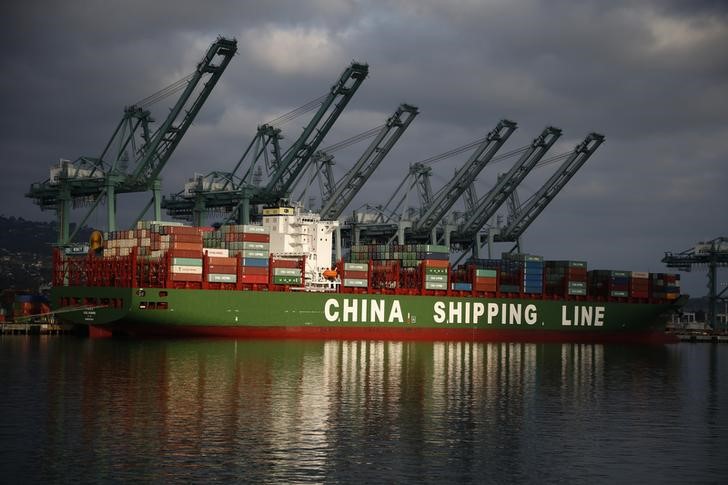Investing.com -- China’s key imports and exports shrank more than expected in July amid worsening global and domestic demand, although the country’s trade balance still grew past expectations for the month.
The country’s trade balance rose to $80.60 billion in July from $70.62 billion in the prior month, data from the customs administration showed on Tuesday. The reading was higher than expectations of $70.60 billion.
But the reading was likely driven by a bigger-than-expected drop in imports, which shrank 12.4% - much higher than expectations for a drop of 5.0%, and last month’s decline of 6.8%.
Weak demand within the country - particularly in the private sector - kept imports largely depressed this year, as a post-COVID economic recovery ran out of steam through the second quarter.
Exports shrank 14.5%, against expectations for a drop of 12.5% and a fall of 12.4% in June. Both imports and exports shrank at their fastest pace since May 2020 - the height of the COVID-19 pandemic.
Weakness in overseas demand for Chinese goods, amid softening economic conditions across the globe, has been a key source of pressure on Chinese exporters this year. Softer demand has also spilled over into the country’s manufacturing sector, which has contracted steadily this year, pressuring China's biggest economic engines.
While the government has promised to roll out more stimulus measures to support growth, it has not provided any concrete information on how the intended measures will be rolled out.
The Chinese economy is struggling to recover from three years of COVID disruptions, with growth failing to pick up substantially even as the country relaxed most anti-COVID restrictions at the beginning of the year. A slowdown in manufacturing, coupled with a growing debt crisis in the property sector, have provided the biggest headwinds to the Chinese economy this year.
Chinese trade figures also act as a bellwether for the broader Asian economy, and reflect increased economic headwinds for the region, particularly for countries with large trade exposure to China.
